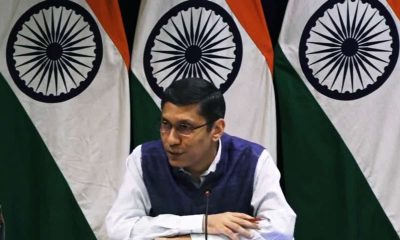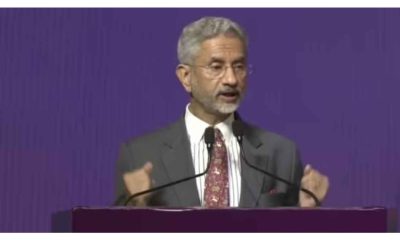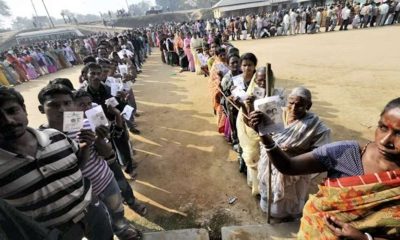Latest world news
Qatar Polite But Tough to Protect Sovereignty
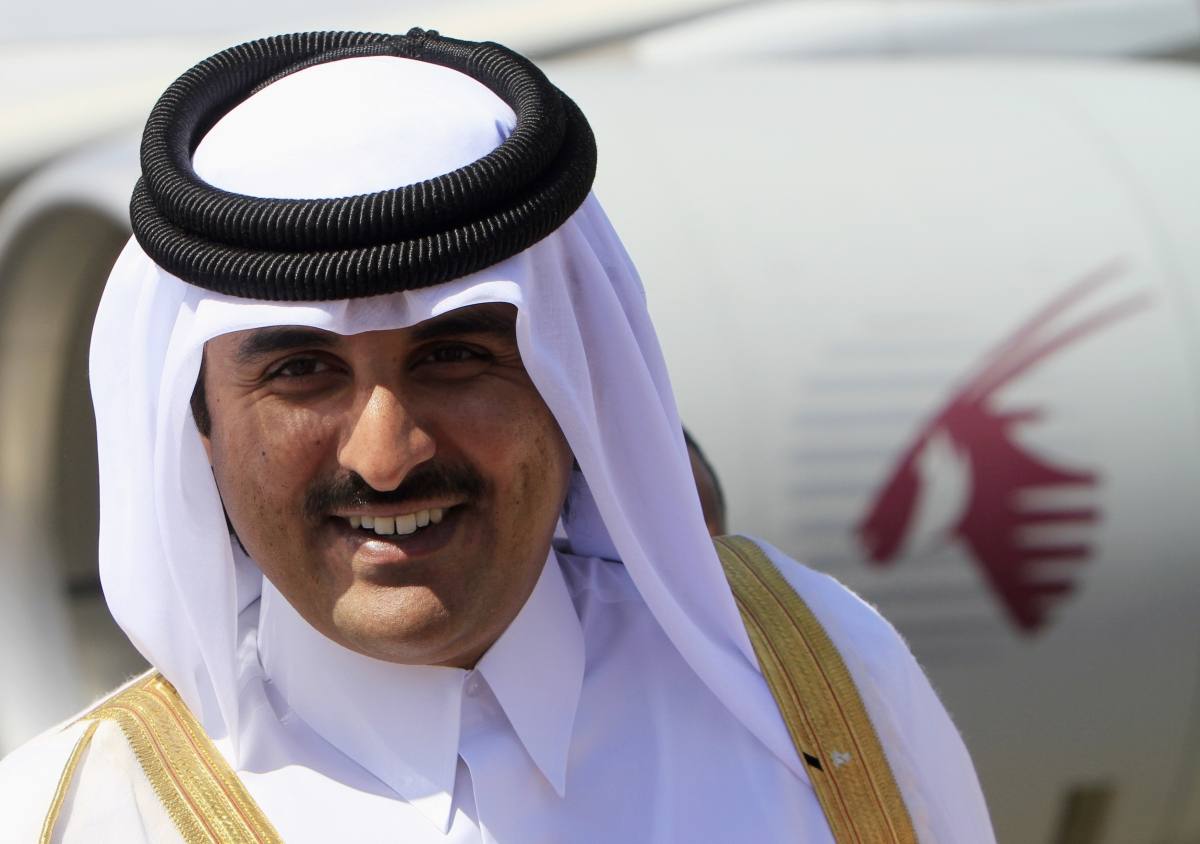
[vc_row][vc_column][vc_column_text]Now Saudi Arabia welcomes Qataris for pilgrimage
The Qatar crisis seems to continue quite long amid Doha’s tough but polite attitude. The Saudi Arabia led quartet is also not forthcoming with new proposals. The situation seems to be gloomed with carrot and stick diplomacy from both the sides.
The Qatari Emir Sheikh Tamim bin Hamad Al-Thni has, on Friday, said that his country is ready for dialogue to resolve the diplomatic crisis with Saudi Arabia led group of countries. However, he has insisted that solution to the crisis must respect his country’s sovereignty.
In his first TV address after Saudi Arabia, Bahrain, UAE and Egypt severed ties on June 5, the Emir described the blockade by the Saudi led group of countries against Doha as “a pre-planned smearing campaign.” He said that severing ties by Arab countries was an act of aggression against Doha’s foreign policy.
He said the planners planted statements to mislead public opinion and the countries of the world. He expressed his dismay over terror allegations by Saudi-led bloc against Qatar and warned that such charges will harm war on terror.
The Emir said that, “We are open to dialogue to resolve the outstanding problems [so long as Qatar’s] sovereignty is respected.” He appreciated Kuwait’s mediation efforts with US, Turkey and Germany’s support. He thanked Turkey for “putting into force quickly a cooperation agreement signed between us and meeting our basic needs.”
On Wednesday last, after Qatar’s refusal to bow down, the Saudi led block of states called on Doha to accept what they view as core “principles” already mentioned in their list of demands from Qatar, apparently backing down from a number of terms on the 13-point list dismissed by the emirates.
Saudi Arabia’s Ambassador to UN Abdullah al-Mouallimi said on July 18 that the quartet is committed to the six principles agreed at a meeting in Cairo on July 5. Kuwait’s Foreign Minister also attended the meeting.
UAE Ambassador Lana Nusseibeh said that Qatar was facing the risk of expulsion from the Gulf Cooperation Council (GCC) in case of failing to comply with the highlighted principles.
A UAE Minister of State for Foreign Affairs Anwar Gargash, while talking at Chatham House in London had said that closing down of Al-Jazeera was not necessary.
Meanwhile Saudi Arabia, on Friday, announced that kingdom will welcome Qatar’s citizens to perform Haj and Umra. They can fly to Saudi Arabia with any carrier except Qatar Airway, the Saudi Ministry of Haj and Umrah said.
On June 5, all four countries asked Qatari citizens to leave their territories and advised their citizens to leave Qatar within 48 hours.
The quartet comprising Saudi Arabia, Egypt, UAE and Bahrain severed diplomatic ties and cut all land, sea and air routes with Qatar on June 5. Qatar was asked to, apart from other demands, sever its ties with Iran, close Turkish army bases and shut down Aljazeera TV channel in its territory.
Qatar had dismissed the 13-point demands list, saying that the terms were mare all orders and that it will not engage in crisis resolution unless the siege is lifted.[/vc_column_text][/vc_column][/vc_row]
Latest world news
World Earth Day 2024: Google Doodle showcases aerial view of planet’s natural beauty
Google celebrated Earth Day 2024 with a special doodle featuring an aerial view of our planet’s biodiversity.
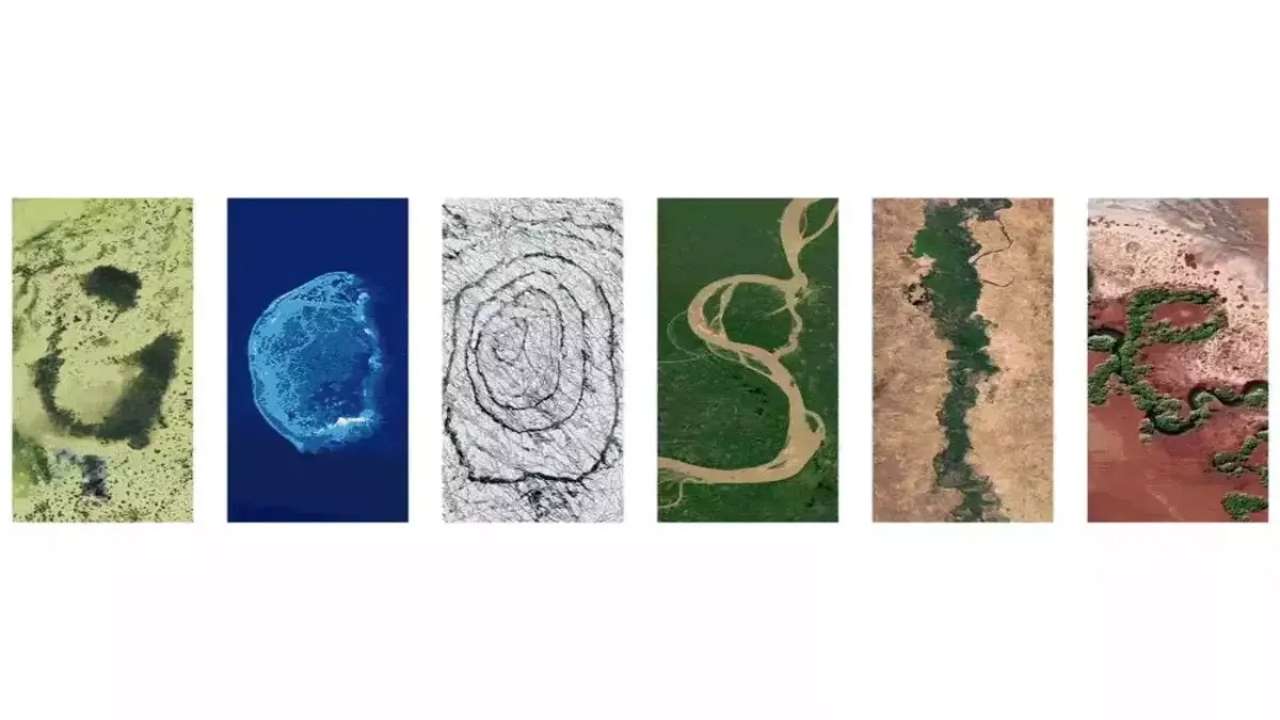
Google shared a doodle today to celebrate World Earth Day 2024, which showcased aerial photos of the planet’s biodiversity and natural beauty. Google reminded us of the importance of protecting planet earth for future generations with the help of this doodle.
The Google letters depict specific locations across the globe where people, communities, and governments work every day to help protect the planet’s natural beauty, biodiversity, and resources, according to the explanation of the annual Earth Day 2024 doodle on their website.
It said, these examples remind us that there’s much more to do to address the climate crisis and biodiversity loss, but also offer the promise of hope and optimism.
The islands of Turks and Caicos are represented by the letter “G.” The islands’ conservation efforts are concentrated on protecting important regions for biodiversity and addressing persistent environmental problems.
The largest reef in the southern Gulf of Mexico and a UNESCO biosphere reserve, Scorpion Reef National Park, is represented by the letter “O” in the Mexican flag.
The letter “O” features Iceland’s Vatnajokull National Park, which was designated as a national park in 2008 following decades of advocacy. The ecology within and surrounding the biggest glacier in Europe is safeguarded by this UNESCO World Heritage Site.
The letter “G” has the Jau National Park in Brazil on it. It is a UNESCO World Heritage Site and one of the biggest forest reserves in South America.
The Great Green Wall of Nigeria is represented by the letter “L,” and the Pilbara Islands Nature Reserves of Australia are represented by the letter “E.”
Meanwhile, Earth Day is a worldwide event that promotes protection of the environment every year. April 22 serves as a reminder of the importance of conservation efforts and sustainable practices to guarantee a healthier world and a brighter future.
The occasion inspires people across the world to come together and take action to protect the environment, strengthening our bonds with nature and promoting good change.
Latest world news
Bigg Boss 14 contestant Rahul Vaidya struggles walking in knee deep water, compares Dubai rains with Mumbai floods
Singer and TV personality Rahul Vaidya was recently stranded in the Dubai rains.

Rahul Vaidya, who was in Dubai ahead of his show which was scheduled to take place today, left the country due to heavy rains and reached Kolkata. The artist shared on social media his encounters in the UAE city, including challenges like walking through knee-deep water. Rahul provided an update regarding the heavy rainfall in Dubai on his Instagram profile.
The Bigg Boss 14 contestant revealed that he was in Kolkata and prepared to do an evening performance. Recalling the terrifying period he went through, Vaidya said there was a lot of confusion and panic in Dubai. The situation was similar to that when heavy floods hit Mumbai in 2005.
Vaiday also posted seval other images and videos of cars that were underwater and flooded roadways. The Bigg Boss 14 contestant, who shared his ordeal, claimed that even though it had just rained for two hours, the situation was dire.
In one of the video, which went viral he can be seen struggling in walking in knee-deep water. He can be also seen holding his sneakers in one hand and with other hand he was seen managing other things.
This is the result of the two hours of rain that it had, he can be heard saying in the video. Vidya also said he dosen’t believe Dubai is accustomed to a lot of rain. Everything had stopped working, he remarked.
After taking part in the first season of the singing reality show Indian Idol, Rahul Vaidya gained widespread recognition. In addition to Bigg Boss, he took part in Khatron Ke Khiladi 11.
Meanwhile, heavy rains that triggered flooding in the UAE and Bahrain, which left 18 people dead in Oman on Sunday and Monday, have paralyzed the financial hub of the Middle East, Dubai.
A lot of incoming flights were diverted from Dubai’s international airport because of the rain. At 7:26 p.m., the busiest airport in the world for foreign visitors stopped accepting new arrivals; a gradual resumption was announced for more than two hours later.
Images of planes navigating flooded tarmacs are making the rounds on social media.
According to pictures shared on social media, the flagship malls Dubai Mall and Mall of the Emirates both experienced heavy floods, while at least one Dubai Metro station had water up to the ankles.
There were several road collapses, severe flooding in residential areas, and numerous reports of leaks from windows, doors, and roofs.
Due to the unfavourable weather, schools around the United Arab Emirates were forced to close, and as more storms are predicted, the closures are anticipated to last until Wednesday. The government of Dubai allowed its staff to work remotely till this Wednesday.
Latest world news
Dubai sky turns green during storm in UAE, video goes viral
The UAE witnessed record-breaking rainfall on Tuesday and the National Centre of Meteorology recorded 254 mm of rainfall in less than 24 hrs in the Khatm Al Shakla area in Al Ain.

1 person was killed in UAE as it witnessed heavy rainfall on Tuesday, stranding commuters, flooding roads, disrupting trains and flights and resulting in water leakage from mall ceilings. The UAE witnessed record-breaking rainfall on Tuesday and the National Centre of Meteorology recorded 254 mm of rainfall in less than 24 hrs in the Khatm Al Shakla area in Al Ain. It is being said that the rainfall was the highest documented since the start of data collection in 1949.
The heavy rainfall in UAE came days after a similar situation in neighbouring Oman, where 13 people were killed in flash floods. Many parts of Oman saw torrential rains, which caused students to be trapped in buses and swept away motorists and trapped people in their homes.
Videos from Dubai circulating on social media showed widespread waterlogging on roads in Abu Dhabi, Dubai and other important cities. This left daily commuters in cars and other vehicles struggling to get back home. Dubai metro station too was seen flooded and closed.
One such video circulating on social media shows the aerial view of the city of Dubai from the top of a building. In the video the stormy winds are seen blowing over the city of Dubai. As the storm intensifies the Dubai sky turns green and ultimately gets covered by heavy rainfall. The video has gone viral on social media with more than 1.1 million views.
Another video showed water leakage from the ceilings of shopping malls, flooding the floors and destroying goods. A video which was shot in the famous Mall of the Emirates, showed pieces of ceiling falling as the rainwater gushed inside. Videos from many outlets of the Deira City Centre mall chain showed escalators being rendered unusable. Majid Al Futtaim, the company which owns the Mall of Emirates, said that the shopping complexes have been kept open and the customers are being sent away from the flooded areas.
-
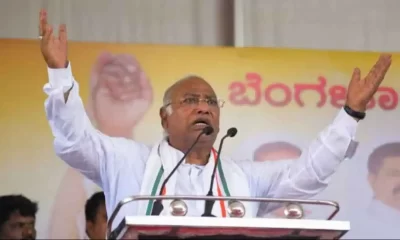
 2024 Lok Sabha Elections18 hours ago
2024 Lok Sabha Elections18 hours agoMallikarjun Kharge vows to continue politics till his last breath to defeat BJP
-

 2024 Lok Sabha Elections19 hours ago
2024 Lok Sabha Elections19 hours agoNitin Gadkari says he’s better now after collapsing at election rally in Maharashtra’s Yavatmal
-
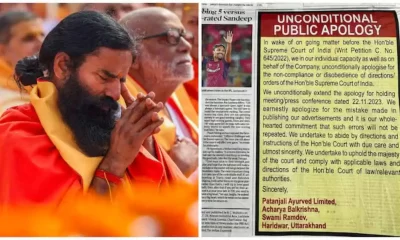
 India News24 hours ago
India News24 hours agoRamdev, Balkrishna publish bigger apology in newspapers after Supreme Court’s rap
-
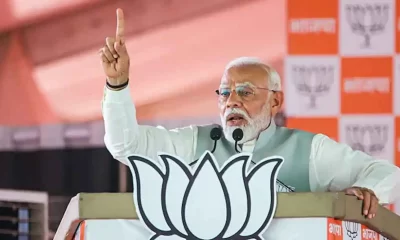
 2024 Lok Sabha Elections21 hours ago
2024 Lok Sabha Elections21 hours agoPM Narendra Modi slams Congress over Sam Pitroda’s inheritance tax remarks, accuses Congress of intending to impose higher taxes
-
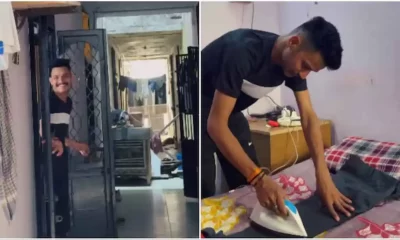
 Trending22 hours ago
Trending22 hours agoA waiter’s life: Social media users go emotional on watching viral video
-

 Entertainment20 hours ago
Entertainment20 hours agoMadhuri Dixit, Karisma Kapoor recreate Dil To Pagal Hai dance battle on Dance Deewane
-

 Entertainment31 mins ago
Entertainment31 mins agoBollywood stars Salman Khan, Alia Bhatt, Rekha, Sonakshi Sinha, Aditi Rao Hydari attend Sanjay Leela Bhansali’s Heeramandi premiere
-

 India News2 hours ago
India News2 hours agoTamannaah Bhatia summoned in illegal IPL streaming app case, to appear before cyber cell on April 29









